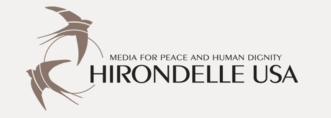 There’s a great interview up on SoundCloud with Anne Bennett, director of Hirodelle USA, which supports community based radio projects across Africa. I transcribed some of Bennett’s comments, which she made during a World Radio Day conference in London. They focused on how to get public health information out to women that women will regard as credible, especially regarding epidemics like Ebola and Zika.
There’s a great interview up on SoundCloud with Anne Bennett, director of Hirodelle USA, which supports community based radio projects across Africa. I transcribed some of Bennett’s comments, which she made during a World Radio Day conference in London. They focused on how to get public health information out to women that women will regard as credible, especially regarding epidemics like Ebola and Zika.
“I think the lesson is very clear that for the message to be received, the message needs to be trusted,” Bennett explained:
“Top down messages with a government stamp are going to be met with disbelief. The other thing that comes out of Ebola is that your messages need to take into account social, economic, and political factors that affect the population. I was really struck when five governments came out and advised women not to get pregnant for up to two years. And while that may be sound biomedical advice, it’s entirely impractical for most women, especially women from vulnerable communities who don’t have access to family planning.
So the whole context of telling women not to get pregnant, when women hear that information there’s a lack of credibility because it’s very clear that whoever is delivering that information doesn’t understand the situation they’re faced with. So they’re still hungry for the kind of information . . . how can they very practically protect themselves and their familiees from the virus given the fact that they have no access to family planning; and that there are high levels of sexual violence, for instance.
So how do you bridge that gap? We think that gap can be bridged by giving tools to local journalists, especially radio, which has a very wide appeal. We think that in partnership with institutions of public health providing tools that those journalists need to report well and provide information to those communities, that’s really the approach.
That includes local languages, so you’ve got local, community radio that’s broadcasting in local languages.”
Bennett added that one of the advantages of partnering with local African institutions is social trust. This was the case when Hirodelle collaborated with a college signal out of the University of Sierra Leone. This gave the project “local legitimacy . . . not going in and creating a stand alone NGO (non-government organization),” she concluded, “but creat[ing] something with a local partner. We were able to pull back and they were willing to take over.”
H/T to SciDev.Net


